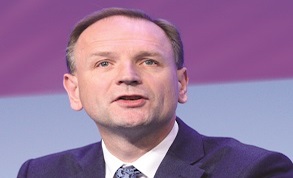Framework mixes must-do commitments with local flexibility
The deadline and guidance on what should be included by sustainability and transformation partnerships (STPs) and integrated care systems (ICSs) in their strategic plans was set out in the NHS long-term plan implementation framework. (Read an HFMA summary of the implementation framework here).
The framework expects local systems to meet the end points set out in the long-term plan, but allows freedom to respond to local needs and priorities.
The framework also provides details of the funding that will be allocated to systems to support delivery of the long-term plan – worth £3.3bn by 2023/24. The funds form part of the £20.5bn long-term settlement unveiled last year. Prior to the framework’s publication only CCG allocations had been announced in detail.
The new funds will be split between allocations given to all systems on an indicative fair shares basis and targeted funds to support specific long-term plan commitments through regions and national programmes. NHS chief executive Simon Stevens (pictured) told an NHS England/NHS Improvement board meeting that systems would have flexibility in using the funding with some key restrictions. ‘Across the board, generally, yes [there will be flexibility] but not on mental health and primary and community services because those typically have been the two parts that have been squeezed rather than over-invested in,’ he said.
Indicative provider funding for specialised commissioning will be shared in July and a set of indicative planning assumptions for the five-year period for pay, non-pay and drug costs are included within the framework. Systems have also been told to plan on the basis that price relativities in the national tariff remain unchanged – a specific proposal for this to apply in 2020/21 is currently subject to an engagement exercise by the NHS England and NHS Improvement pricing team.
System plans will need to set out how resources will be used to deliver the long-term plan commitments and meet its financial tests – including returning to or maintaining financial balance. Financial recovery plans will be needed for each provider and commissioner in deficit.
The framework identifies a number of service changes as ‘foundational’ commitments that must be delivered. These include:
All plans will also be expected to set out how STPs will become ICSs by April 2021. These critical foundation areas will be subject to detailed trajectories. But systems will have more flexibility in transforming services in other areas, reflecting different starting points and local priorities. These areas include: prevention; maternity; children; learning disabilities; cardiovascular disease; stroke; diabetes; respiratory disease; research; genomics; volunteering; and wider social impact.
NHS Providers welcomed the implementation framework. ‘It brings much needed clarity for local leaders,’ said chief executive Chris Hopson. ‘It gives clearer priorities and milestones and sets out where there are must-do national priorities and where there is scope to fashion a more local set of priorities.’
But while the plan was right to be ambitious, he also called for realism. ‘We must, though, be realistic about how much can be delivered for the extra money provided alongside the long-term plan given how far the NHS has fallen behind existing performance standards, the scale of workforce gaps, the need to deliver more integrated care and the sheer breadth of what we are seeking to deliver for patients,’ he said.
Nick Ville, director of membership and policy at the NHS Confederation, also welcomed the recognition of the importance of local freedom to shape services and said the framework would help achieve the vision of joined-up care closer to people’s homes with a focus on prevention. But he warned there were some fundamental unresolved issues.
‘At the top of the list is uncertainty about capital spending, training and education budgets, public health and social care,’ he said. ‘Resolving the staffing crisis in particular will be vital – if we don’t have the right staff in place then all bets are off. These issues must be resolved at the time of the next spending review and need to be a priority for the incoming prime minister.’
NHS England and NHS Improvement also published a paper looking specifically at implementation of the long-term plan in primary and community services. The paper covers a number of issues including the new funding guarantee and a progress report on the formation of primary care networks.
HFMA summary of the NHS long-term plan implementation framework
Related content
We are excited to bring you a fun packed Eastern Branch Conference in 2025 over three days.
This event is for those that will benefit from an overview of costing in the NHS or those new to costing and will cover why we cost and the processes.